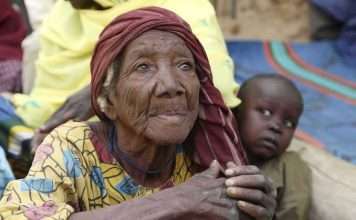Olayinka Ajomale, Oyo State Coordinator for the Coalition of Societies for the Rights of Older Persons in Nigeria, expressed concern that older adults in the country are overlooked and not ageing in a healthy manner.
He emphasized the widespread disregard by society, criticizing the common misconception that older individuals are a burden.
Wakadaily learnt that, Ajomale, a member of the coalition’s Board of Trustees, also noted that the large-scale migration of younger Nigerians and their families has exacerbated the issues of loneliness and neglect faced by senior citizens.
This phenomenon has been reported to have a profound impact on the elderly, who struggle with loneliness despite supporting their children’s aspirations to move abroad.
According to Statista, a global data platform, Nigeria’s elderly population (aged 60 and above) stood at 9.4 million out of a total population of 206 million, while the World Bank estimated that 6.5 million Nigerians were aged 65 or older in 2022.
Recognizing the value of older persons, UN Secretary-General António Guterres described them as, “invaluable sources of knowledge and experience and have much to contribute towards peace, sustainable development, and protecting our planet.”
The United Nations launched the Decade of Healthy Ageing (2021-2030) to promote the health and well-being of older adults, their families, and communities worldwide.
However, in Nigeria, the lack of a effective national policy to support older persons has hindered their ability to age healthily.
This has resulted in numerous reports highlighting the challenges faced by retired government workers, some of whom have tragically passed away while waiting for their retirement entitlements.
Additionally, a report titled “Healthcare for Older Persons, A Country Profile: Nigeria” exposed the inadequacy of healthcare services for older adults, who are often admitted to wards intended for younger patients, indicating a shortage of specialized geriatric care.
Experts have identified the root causes of unhealthy ageing among older persons as,
Ajomale said, “Lack of access to quality healthcare services led to self-medication and access to fake drugs. Self-medication does not bring good health to older persons, the same thing as access to fake drugs, and there is little control over it.
“This is what is happening in the rural areas where there are more elderly people than in the urban areas. They have more access to quacks and traditional health attendants.
“Another thing is the poverty level in older persons. By the time you are retiring, you have a low income and for a society like ours that does not have social security for older persons, how many people are on pension? Even the pension is inadequate and it doesn’t come in as when due. This does not make them eat healthily.”
He also pointed out that the disintegration of the extended family system has been exacerbated by the large-scale migration of young adults abroad, a phenomenon commonly referred to as “japa” syndrome.
The geriatric social worker further observed that in Nigeria, older age is often viewed as,
“I would not say it is because of fear but the mindset that people have of believing in the present rather than in the future. Also, there is the mindset that the period of old age is a period of rest and unproductivity, so society sees the older person as having done their part and needs to take the backseat. They don’t see them as an asset to the society. That way, children, women, and youths are given more priority while the elderly are put aside.”
Although Ajomale commended the gradual acceptance of older citizens as valuable assets, he stated that the progress was slow.
He stated, “If you don’t see the older person as an asset, then you are not likely to do them any good. When they get to age 60, they are told to go and sit down because they have done their bit. Meanwhile, some of them are productive into their 80s.
“Thank God for the increase in retirement age, before now, it used to be 65 years. A Professor and a judge in the Federal High Court or Supreme Court can work and make rulings up to the age of 70 because they are still productive. We are gradually treating the older persons more as an asset than a burden but it is going at a slow pace.”
